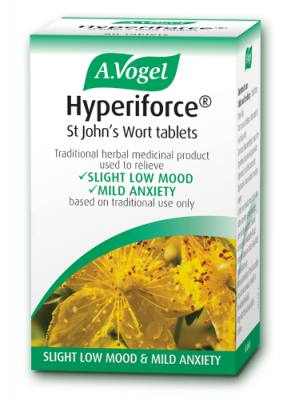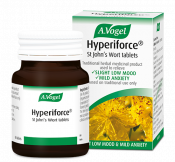What is the dopamine diet?
The weight loss regime that also helps to give us a mood boost. This diet aims to increase levels of dopamine in our brain making us feel good. Essentially the dopamine diet involves eating foods high in tyrosine which is most commonly found in good quality protein, although it can also be found in more unusual sources such as green tea, vanilla, lavender, sesame seeds and spirulina. Tyrosine is the chemical precursor to dopamine that prevents energy spikes and crashes that can cause irritability and tiredness if we don’t satisfy those demanding cravings!
Most versions of the diet recommend avoiding alcohol, caffeine and processed sugar and others suggest completely cutting out carbohydrates. Generally, the diet promotes food such as dairy products, good-quality, unprocessed meats such as chicken and turkey, and even dark chocolate!
While unhealthy, sugary and fatty foods are thought to stimulate an increase in dopamine, healthier foods such as those rich in protein are also thought to have such an effect. Eating more protein-rich foods are believed to have this effect due to the amino acid tyrosine which is thought to deliver the same rewards as sugary foods and balance our diet out resulting in fewer cravings and less desire to overeat.

How does dopamine affect the brain?
Dopamine is a neurotransmitter that is responsible for sending signals between nerve cells in the brain. Dopamine has a direct influence on the pleasure and reward centres in the brain and how these affect our mood. Dopamine helps you control weight, energy as well as help your brain and heart to function normally. It is also involved in a wide variety of other functions including:
• Movement
• Pleasure and reward
• Attention
• Mood
• Learning
• Memory
When we don’t eat regularly or skip out on meals throughout the day our dopamine levels drop which leads to hunger cravings. If we indulge in these cravings and feel good and satisfied afterwards we programme our minds to repeat this pattern – to seek out the unhealthy foods that we crave because eating them makes us feel good. The unfortunate thing about this is that we, more often than not, crave unhealthy refined carbohydrates. Overindulging in foods like these can lead to weight gain and eventually obesity.
Studies have found that dopamine plays a significant role in the management of hunger cravings as well as directly affecting weight gain and loss.1
What’s the catch?
Here at A.Vogel, we’re all for eating food that makes you look and feel your very best, that being said, we’re not really fans of sticking of calorie-counting and monitoring every little morsel of food that goes into your mouth. While we love the concept of the dopamine diet we would never recommend that you completely cut out carbs or indeed restrict your intake dramatically.
Carbs are an essential micronutrient and your body’s main source of energy so completely cutting them out can have disastrous consequences for your mood. Complex carbs can actually be beneficial for your mood without them we can feel foggy, light-headed and have difficulty concentrating all of which can lead to us feeling low in mood or, in more serious cases, can even contribute to depression.
We believe that food should be enjoyable, healthy and fun and that this is more than possible to achieve with some simple lifestyle changes that not only benefit your body but your brain too! Like anything it’s all about moderation, completely restricting your intake of something can have equally damaging effects as having too much of something.
Although the dopamine diet usually promotes foods such as dairy and unprocessed meats, we don’t often recommend excessive amounts of these kinds of foods due to their mucus-promoting and inflammatory effects on the body. So instead we’ve come up with some healthier substitutes that boost dopamine that you can try instead.
6 great foods for boosting dopamine levels

1. Bananas
Bananas, particularly ripe bananas contain a high concentration of tyrosine which makes them an excellent option for regulating our dopamine levels.
A fun and easy dopamine-boosting recipe to try: No-bake Banana & Cinnamon Mini Cheesecakes (Vegan & GF)
2. Nuts
Different nuts contain a whole bunch of nutrients that are beneficial to our mood and dopamine levels:
• Brazil nuts are high in selenium which helps with production of dopamine
• Almonds are high in tyrosine
• Pumpkin seeds are high in vitamin B6, folate and zinc
• Walnuts, chia and hemp seeds contain a balanced amount of omega-3 fatty acids, anti-oxidants, and linoleic acid essential for healthy hormones and neurotransmitters
A fun and easy dopamine-boosting recipe to try: Spicy Nut Roast (Vegan & GF)
3. Dark chocolate
Now, let me emphasis DARK chocolate here NOT milk chocolate and when I say dark I mean at least 70% organic cocoa! In its raw format, also known as cacao, this food is packed with dopamine boosting nutrients! It helps to modulate the release of dopamine in the brain whilst also being rich in magnesium, zinc and chromium – essential minerals which support and stabilise our mood.
Some brand new research has backed this idea and found that people who regularly consumed a small serving of good quality, dark chocolate were less likely to suffer from symptoms of low mood compared to those who didn't eat any chocolate at all.2
A fun and easy dopamine-boosting recipe to try: Salted Cacao & Almond Butter Fudge
4. Apples
Apples contain a flavonoid antioxidant called quercetin which is believed to help prevent dopamine loss by the brain.
A fun and easy dopamine-boosting recipe to try: Apple & Spinach Smoothie
5. Beetroot
Beetroot is rich in betaine, an amino acid that works like a natural anti-depressant that assists dopamine production.
A fun and easy dopamine-boosting recipe to try: Roasted Beetroot with Garden Herbs & Orzo Pasta
6. Leafy greens
Foods rich in folate and vitamin B6 such as leafy greens, broccoli, chickpeas and cauliflower can help to produce dopamine and elevate our levels of feel-good serotonin. It’s best to enjoy these foods raw wherever possible, or with minimal cooking such as steaming to help the food to hold on to its nutritious value.
Learn how to cook spinach to make the most of its dopamine-boosting properties!
Top tips for using your food to boost your mood
Eat regular meals
This prevents highs and lows of blood sugar levels which leads to swings in hormone levels, which in turn, can cause mood swings. Regular meals and consistent meal times help to regulate our appetite and prevent excessively eating.
Avoid skipping meals as this can mess dramatically with our mood, causing poor concentration, mood swings, and zaps our energy levels. This means that we are much more likely to compensated by indulging in junk food that is often high in sugar to give us that much needed energy fix. If you lead a busy lifestyle, batch cooking and preparation in advance is key to ensuring that you get the nourishment that you need.
Exercise regularly
Not only does exercise help to increase dopamine levels but, it also helps along the digestive process preventing and relieving symptoms of digestive discomfort such as constipation.
The closer food is to its original state, the safer it is to put on your plate!
Sensitivity to the kinds of additives, colourings and chemicals found in heavily processed foods, fizzy drinks and refined sugars is extremely common because these aren’t natural! Looking at it from an evolutionary perspective, we weren’t designed to consume these sorts of substances, fruit and veg on the other hand, is natural, it can be found in nature and has sustained us for thousands of years! Try to buy organic wherever possible as these types of fruit and veg won't be processed with chemicals. Not sure where to start? Check out our guide for shopping more organically.
Eat a balanced diet containing foods from each of the major food groups
This includes eating protein, complex carbohydrates, healthy fats, as well as fruit and vegetables.
- Protein is an essential part of any diet and, when it comes to our mood it is used in the production of hormones which can be essential to our mood. An example of this includes tryptophan, which is a key ingredient in the production of serotonin, another fundamental neurotransmitter that plays a role in our mood.
- Complex carbohydrates such as wholegrain pasta, peas, beans and some root vegetables release energy slowly into the bloodstream meaning that we are less likely to experience an energy crash. Without complex carbs we can have difficulty concentrating and can feel light-headed and foggy.
- Healthy fats include monosaturated and polyunsaturated fats such as those found in olive oil, sesame and rapeseed oil, avocadoes, walnuts, oily fish and flaxseeds. They are also thought to be beneficial for our mood; omega-3 fatty acids are thought to increase our levels of dopamine and boost alertness, which, in turn helps to support our mood.
- Fruit and vegetables are packed full of important vitamins and minerals that help to keep our neurotransmitters happy. For example, vitamin B deficiencies have the potential to trigger anxiety and depression in some people.
Eat mindfully
Take time to sit down and chew your food properly, chewing your food slowly stimulates the secretion of important digestive enzymes both in the saliva and in the stomach that help to break down food. When we lead a hectic, busy lifestyle or are highly stressed, eating on the run sometimes seems like the most convenient option to us, however, this can play havoc with our bowel as well as our brain. It can lead to poor absorption of key nutrients which can then cause emotional turmoil too.
Are there any herbs that can help to lift my mood?
 We’ve all been hit by ups and downs – it’s part of the rollercoaster of life! Sometimes when we’re feeling low it can be difficult to get yourself out of the funk. Taking steps to making sure that what you put inside your body is good and nutritious is the first step to helping to boost your mood. If you feel like you need an extra little lift our handy herbs are here to help. For low mood we always recommend Hyperiforce which contains the herb St John’s Wort.
We’ve all been hit by ups and downs – it’s part of the rollercoaster of life! Sometimes when we’re feeling low it can be difficult to get yourself out of the funk. Taking steps to making sure that what you put inside your body is good and nutritious is the first step to helping to boost your mood. If you feel like you need an extra little lift our handy herbs are here to help. For low mood we always recommend Hyperiforce which contains the herb St John’s Wort.
1 https://nutritionandmetabolism.biomedcentral.com/articles/10.1186/1743-7075-5-35
2 https://www.sciencedaily.com/releases/2019/08/190802145458.htm









